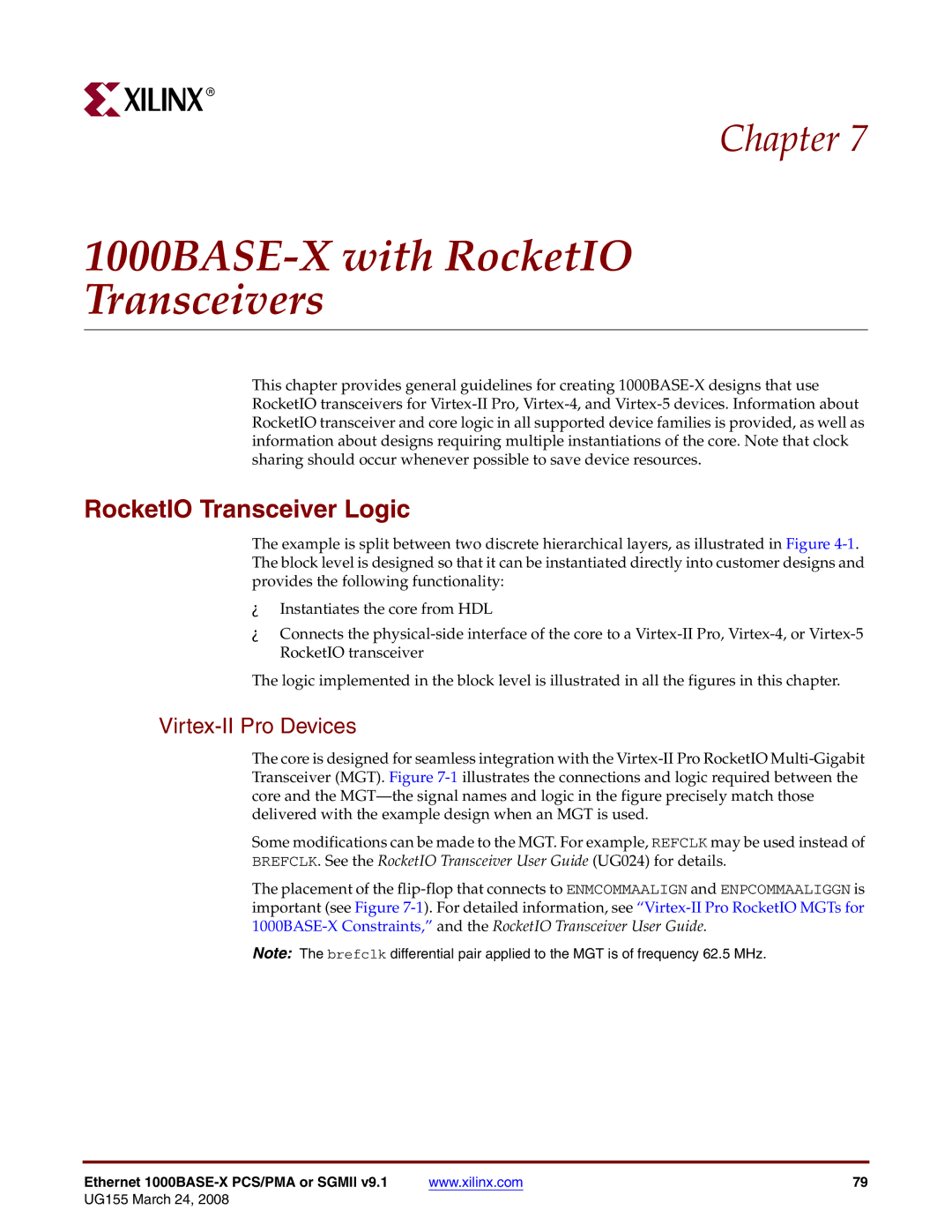
R
Chapter 7
1000BASE-X with RocketIO Transceivers
This chapter provides general guidelines for creating
RocketIO Transceiver Logic
The example is split between two discrete hierarchical layers, as illustrated in Figure
•Instantiates the core from HDL
•Connects the
The logic implemented in the block level is illustrated in all the figures in this chapter.
Virtex-II Pro Devices
The core is designed for seamless integration with the
Some modifications can be made to the MGT. For example, REFCLK may be used instead of BREFCLK. See the RocketIO Transceiver User Guide (UG024) for details.
The placement of the
Note: The brefclk differential pair applied to the MGT is of frequency 62.5 MHz.
Ethernet | www.xilinx.com | 79 |
